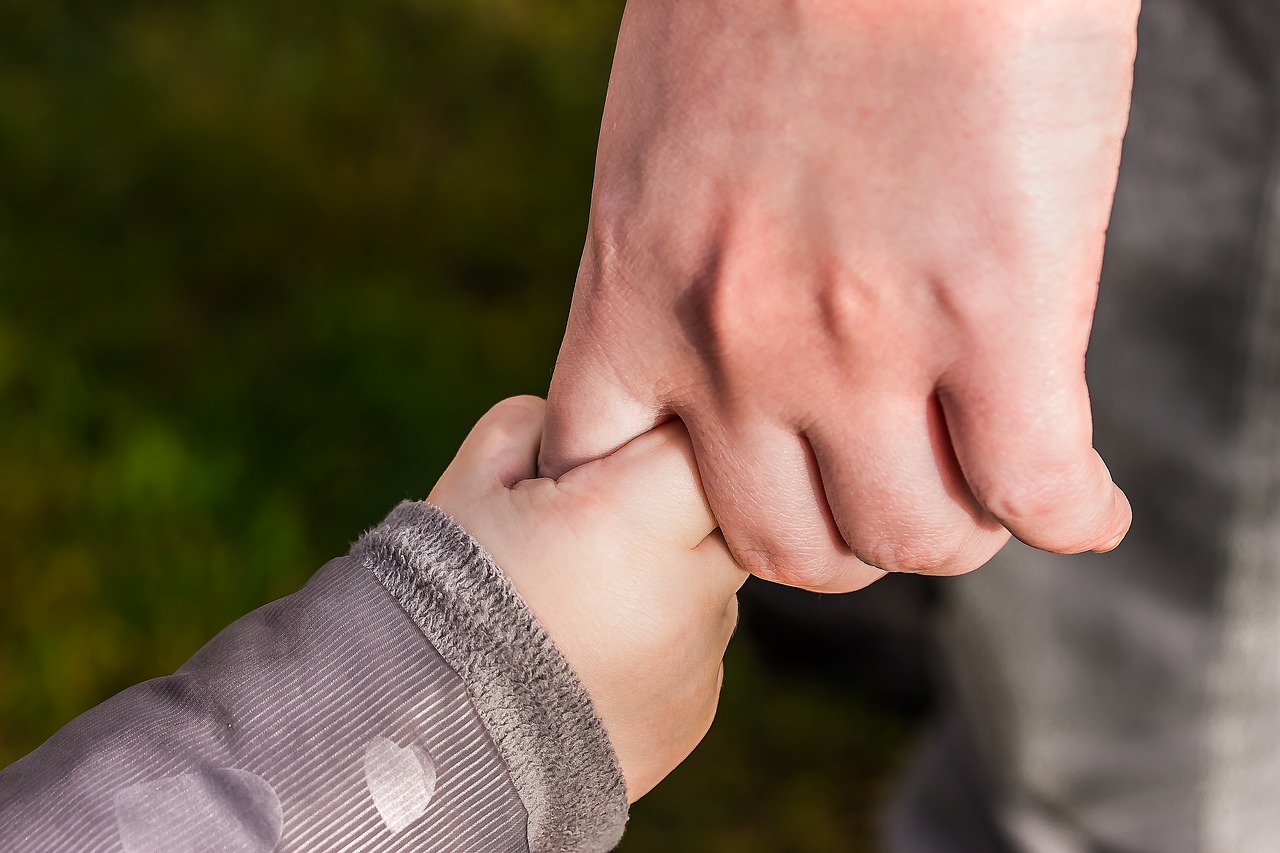
We thought we’d end this year’s newsletters with a summary of the talk by Ms Rukmani Ramachandran from Navadisha Montessori Foundation, as part of the series of talks from Indian Montessori Foundation (IMF). Her talk was titled “Parenting Challenges in the Global Village,” and the details were shared on the broadcast groups for all classrooms.
She began the session by breaking the participants in small groups to discuss what we perceived as a major parenting challenge. A list of challenges that came up were, inability to set limits for children, entitlement among children and challenges of parenting in a joint family. She said she would like to go back to the principles of Montessori theory and practice, as that is what we have most experience with. We would end up getting most of the answers from Dr. Montessori’s talks. Dr. M said she had ‘discovered’ the child. Humans have been on the earth for over 40 million years! In the light of this knowledge, it is a very weighty statement to make that she has “discovered” the child! She believed that we don’t actually “see” the child and that the child’s true nature is always hidden from us. She believed she had discovered the secret which made the child reveal themselves truly to us!
Humans themselves haven’t changed much from when we became bipedal and able to influence the environment around us with the large brains that we were gifted by evolution. Not much has changed from the early hunter gatherer times. Like them, we still look to orient ourselves when we go to a new place – we ask ourselves, where is the closest grocery store, where can I buy clothes; we look for a shelter and we tend to beautify the place we call home. Besides, the fundamental needs of food, shelter, and clothing, like early humans, we have spiritual needs of love of the finer things. For all that we profess that we have come so far away from the early humans, if we think about it, not much has actually changed.
So, in the light of this, why and what are parenting challenges today? We seem to believe that the life of the earlier generation was somehow easier than ours… If we think back, the generation that saw WWII probably thought that they are the generation going through the most crisis. This kind of puts the current pandemic in perspective. Montessori’s ideas transcend time. They focus on the unchanging! The child is born in a timeless world.
If we were to look at parents from all generations, they, from time immemorial, have wanted a good, happy life for their children. Our challenge today is: how do we support our child to lead a good happy life? Our environment today confuses even us, as adults! How do we help this child in today’s confusing times? She gave an example of the mall which is not just a physical space selling goods alone. They sell dreams, they sell a lifestyle, a “need” that we do not have! It is in this confusing physical, moral, emotional, intellectual environment that we must raise children. How do we identify these problems in order to solve them? Sometimes, we are so tired and anxious that it affects the way we engage with our children.
She moved onto what she believes is a key challenge that we face today – we don’t have time today! We jump into the shower, we spin around the kitchen, we rush to the grocery store, we are impatient at the toll plaza or the bill counter. So much so that we walk fast, talk fast, and want people around us to work faster as well. We multi-task all the time, thinking we are being effective. Many of us have not had an oil bath in years! Our lives are ruled by urgency and hurry!
She spoke of how she sees teachers these days in a perennial rush all the time as well. She spoke of her own anecdote when she was a freshly minted Montessori graduate and in her first year of training, she was exhausted by the load of work in school and she was perennially tired! She had built a sand pit under a mango tree that she spent a lot of money on (which she realised later that she didn’t need at all 😊). She would send the children away to go play after a small work cycle and when her trainer observed this, she came up to her and told her that the children didn’t need playtime; it was she who was tired. Why was she asking the children to play when in fact, it was she who needed a break? It was because she hadn’t looked at her own needs. When she became aware, the class transformed. What the children needed was devoted attention and time from the adults. Are we giving this to our children?
The child, on the other hand, is born timeless. He is born in the present moment and does not know the past or care to predict the future. He has all the time in the world! This is a huge challenge for the child, which calls us to awareness. The only way to snatch back time is to observe oneself. Until we become aware that we are rushing, we will not be able to help us and the child. As a human being we owe it to ourselves, to study oneself and be aware and mindful. We have to be worthy of the child.
So, this leads us to what she thinks is the solution. The philosophy provides us the answers. She urged us all to clock every activity of our day, in the time it took for one whole 24-hour cycle. This would help us a tool for reflection. We do not have time because we don’t know how to plan. Despite having all the latest planning gadgets and fancy stationery to organize our lives, we still lack time. Planning is an act of creation; it is a craft. A craft is a skill that we learn through experience. We cannot get it right the first time around, it needs practice… the first time we planned for a huge dinner party, something was sure to go wrong! When you build experience, then your ability improves.
In the past, during the 1940’s, cooking was much harder than it is now. Nothing in the shop was available readymade back then, so much so that even wheat flour had to be bought as kernels and taken to the mill to be ground and stored in large quantities, ensuring that it does not get spoilt. However, today, with a press of a button, wheat flour gets delivered at our doorstep. ‘Long term planning’ was a part of life then. Today, feeding into instant gratification, everything is available as we wish for it. Back then, most homes were frugal and simple things like Coca Cola, which needed to be shared among siblings, were a treasure to be cherished!
Planning requires long term thought. Where is long term in today’s times? When we don’t plan, we have to do things that very instant and this then leads to stress which we blame on the lack of time, and not lack of planning! Summer holidays in the 90’s were planned months in advance. Planning needs flexibility, a cushion for things to not go as expected. We choose not to do this and blame it on the lack of time!
Planning means saying no! She cited an example of a doctor’s appointment. If we know that we have an appointment to meet the doctor at 10 am, do we say no to the parenting challenge webinar which starts at 9 am and goes on till 12 noon? We instead convince ourselves, that on the way to the doctor’s office, we will login to Zoom and listen to the seminar. We never end up fully listening, because we are constantly interrupted. All this because we have been unable to say no and prioritize! We have to learn to prioritize our day into what we would love to do and what we have to do. It ends up being that for most of us, what we have to do takes priority over what we love to do. That’s when dissatisfaction creeps in. In order to be able to do what we love to do, we will have to learn the art of saying no to a few that we have to do!
Planning can be enjoyable if we truly are able to think long term and work backwards in smaller chunks. Planning gives the room for pleasure! She quoted Dr M’s “Work is rest and rest in work.”
While this does not immediately strike out as being a parenting challenge, if we as a parent don’t have time for our children, then what are the children experiencing from us? They experience rush, hurry, irritation and so on. We are unable to focus on the small pleasures that the child has all the time for! The ant crawling on the ground, the flower that has just bloomed, looking out of the window and seeing the birds along with our children – do we have time for all this with them?
Children need endless time and need our complete focus and attention. Albeit, for a window of time, but do we truly give them that undivided attention? It is better to have one attentive adult to many children rather than having many adults for a group of children, who are on their phone, distracted by conversations with other adults, unaware of the child’s needs! When we have time for ourselves, we are relaxed, and so more present for the child.
She left us with the thought that, while being able to say no and prioritizing are key aspects of planning, any good plan is contingent on order, consistency, and routine. There is no human life without order. For adult life to thrive, we must establish a routine and order. It seems to be common these days for families to say that they do not have time to eat together as a family! She insisted that this is not a statement of pride and that each family needs to invest in planning to eat together. Food is most relished when done in a social unit together. This requires planning and adjusting for each other’s times so that the family can enjoy one meal at least together. This requires committing and honoring each other’s commitment.
This talk was truly inspiring for us a school. We have committed to introspect and see how we can plan better for the upcoming year and wisely invest our time.





No comment yet, add your voice below!